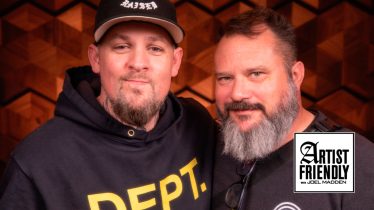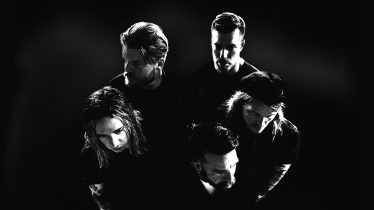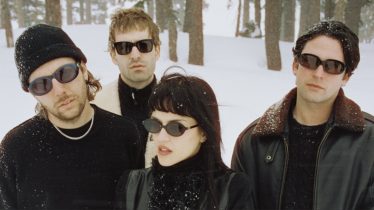Fake Problems' Derek Perry on "5 Ways To Jump Start Your Scene"
Meet DEREK PERRY. Best recognzed as the bassist for FAKE PROBLEMS, Perry has also contributed an Op-Ed to AP in the past and recently began dabbling in record producing (see You Blew It!'s new album). He teased AP with a possible book release coming out on Paper + Plastick, but in the meantime, Perry wanted to share some ways readers can jump start their own local music scenes. Check out Perry's five-point list below as he hopes to teach others how to “spread the gospel of alternative art in a meaningful and lasting way.”
1. Make A Zine
Zines (Pronounced “Zee-ns”) have been extremely influential in American culture for hundreds of years. It can be argued that publications like the Federalist Papers or The Poor Farmers Almanac, and even Webster’s dictionary first began as a Zines. Zines are self-published, non-corporate publications that range in structure; from magazines, books, portfolios of artwork, newsletters, or other collections of intellectually oriented material—all may constitute a Zine.
Zines can be constructed alone or among friends as one offs or series, containing articles, commentary, reviews, poetry, photos, ideas, or any combination of the aforementioned or even more. It is relatively cheap to create, publish, and distribute a Zine. The main ingredients are a purpose, time, and the desire to create and share.
You could be distributing your Zine throughout your community by the next show. That is powerful.
2. Host A Show At Your House
Host a show at your house, a friends’ house, or somewhere else that you can gather people for free in order to create an artistic demonstration—a show. Artistic demonstrations are a catalyst for inspiration—inspiring and being inspired. A show can instantly create a community of artists, each in competition to push the realms of possibility, in addition to entertaining a group of people. A value can’t be placed on bringing people together.
Shows ensure that peoples’ artistic musings are being demonstrated publicly, that voices are heard, which will in turn spark the creative ideas that foster an environment essential for the steady creation, continuation, and production of art. A show is anything artistically demonstrated for a group; a poetry reading, a handful of songs, a performance piece, and many other types of performances are also considered shows.
3. Create A Discussion
Reach out to people: strangers, friends of friends, and anybody in between. Discourse, new ideas, and the diffusion of information are integral for a functioning, healthy scene, if not outright the presence of new friends and people. Invite people to shows, distribute information, talk politics, share your views on media, and have an open mind.
Without a discussion, stagnation occurs. Complacency and the same-old thoughts and tendencies replace the energy and excitement that should be incumbent to a healthily versed community. Competing ideas and inclusiveness to outsiders are crucial to this energy and excitement. The benefits of open dialogue are obvious.
Any and all art (that you create) that inspires or provokes thought is creating a discussion.
4. Start To Collaborate
Collaboration is the action of working with someone to produce or create something. Whether it be starting a band, writing a play, creating a zine, working on a website, putting together a show, or intermingling somehow, collaboration is key. People need to work together and with different people in order to create diversity in the scene. With half a dozen people, a dozen bands can be created with various musical styles, influences, and performance styles. These half dozen could intermingle with another half dozen to create two-dozen different performing acts. Collaboration enables more art to be created more efficiently. It also encourages competition, which leads to higher quality art and a healthy, well developed scene.
Call up a friend. Post on Twitter/Facebook about it. Start something with someone. Then you can hold each other to goals and ideals, and eventually follow-through with your notion.
5. Share Your Love
Make a mixtape, playlist, or burned disc, and share your favorite songs, bands, artists, moods, styles, or genres with others. Pass along information, such as good books, speeches, things you’ve heard or read, or zines. Let others know about events that pertain to the scene—artistic shows, demonstrations, or performances. Ask others to do the same; ask for new media or art, or what’s new. Not only will you strengthen your individual relationship, your knowledge/inspiration, you will strengthen the scenes’ collective relationship and ability to inspire.
Getting involved on any level is the best thing you can do to jumpstart the scene. Aside from the aforementioned ways, you can take photos, start a record label, organize an event, help other artists promote themselves, volunteer to help at a show, perform, and/or produce art in some capacity that helps create and sustain a community. alt







